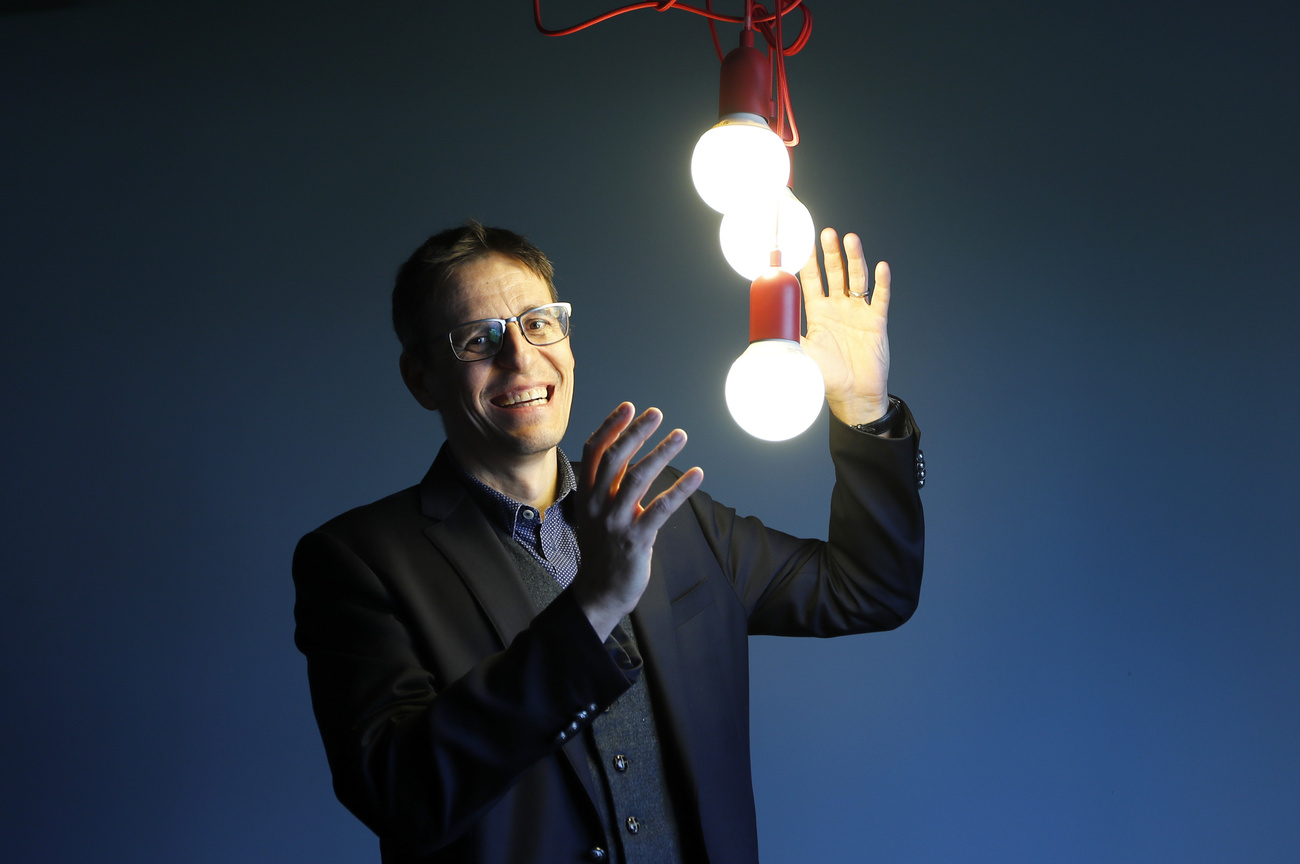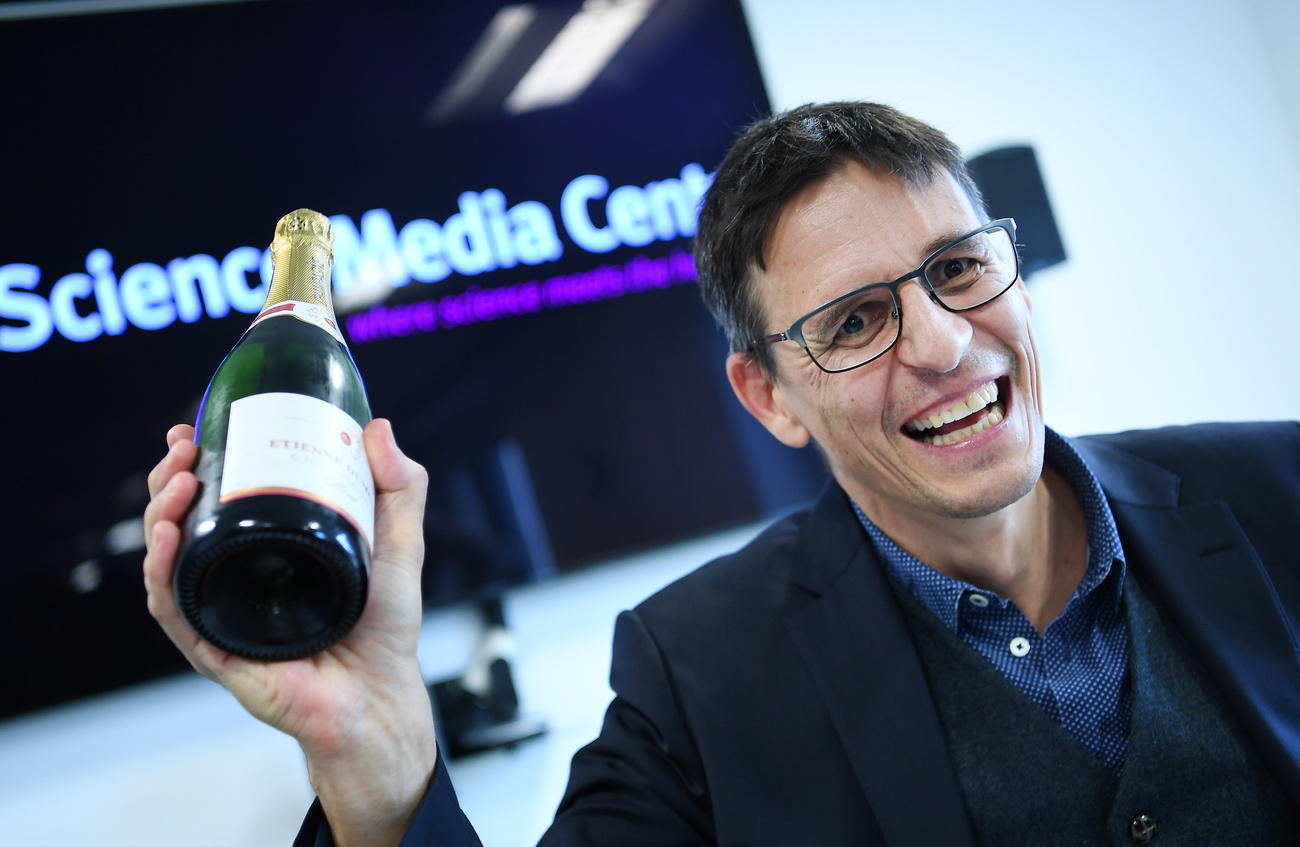
Laboratory-created life within reach, says Swiss Nobel Prize scientist

Laboratories could be creating life from scratch by the end of the century, according to Swiss Nobel Prize winner Didier Queloz. “In my opinion it is only a matter of time before we succeed,” he said.
“We have had the power of destruction since we had nuclear weapons. In this century we will attain the divine power of creation by creating artificial life from the ground up,” Queloz told the Tamedia media group in an interview on Friday.
+ “There is life elsewhere in the universe”
The emergence of life is ultimately a chemical process, says Queloz. “If the conditions are right, life will emerge. I see no need for an initial push from a creator god,” said the Nobel Prize winner.
The 57-year-old astrophysicist was awarded the Nobel Prize in 2019 together with his colleague Michel Mayor for the discovery of the first planet orbiting a sun-like star.
Since 2021, he has been building a centre at the Swiss Federal Institute of Technology Zurich that researches the origins of life. According to Queloz, this includes research into the solar system, the analysis of exoplanets and attempts to simulate the emergence of life in laboratory experiments.
Queloz is convinced that it was his Nobel Prize that made the creation of this centre possible. Many colleagues in physics would not consider the search for the origin of life to be a real science, said Queloz. The chemists didn’t care about the issue because it was obviously more attractive for them to work in the pharmaceutical industry.

More
In space exploration, Switzerland punches above its weight
“With the Nobel Prize behind me, people suddenly listened to me and I started to explain the matter to them,” Queloz continued.
The physicist said the Nobel Prize also changed his life in other ways. According to the astrophysicist, people outside of astrophysics suddenly began to listen to him, and he became a kind of science diplomat.
In addition, he receives “nonsense by email almost every day,” said Queloz: “One has reinvented the history of the universe, a second thinks he knows the solution to all of humanity’s problems, a third claims he can prove the existence of God.”

More
What’s behind Switzerland’s star-studded Nobel success?
This news story has been written and carefully fact-checked by an external editorial team. At SWI swissinfo.ch we select the most relevant news for an international audience and use automatic translation tools such as DeepL to translate it into English. Providing you with automatically translated news gives us the time to write more in-depth articles. You can find them here.
If you want to know more about how we work, have a look here, and if you have feedback on this news story please write to english@swissinfo.ch.

In compliance with the JTI standards
More: SWI swissinfo.ch certified by the Journalism Trust Initiative



























You can find an overview of ongoing debates with our journalists here . Please join us!
If you want to start a conversation about a topic raised in this article or want to report factual errors, email us at english@swissinfo.ch.